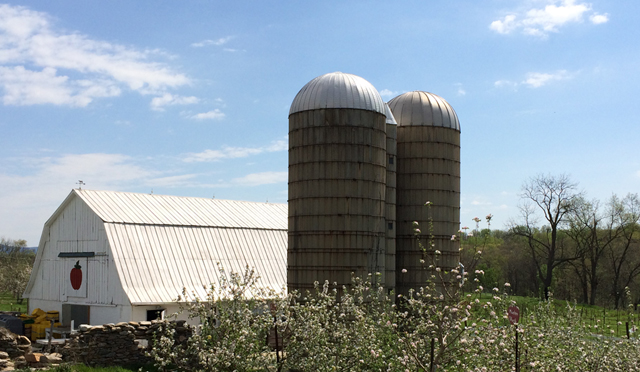
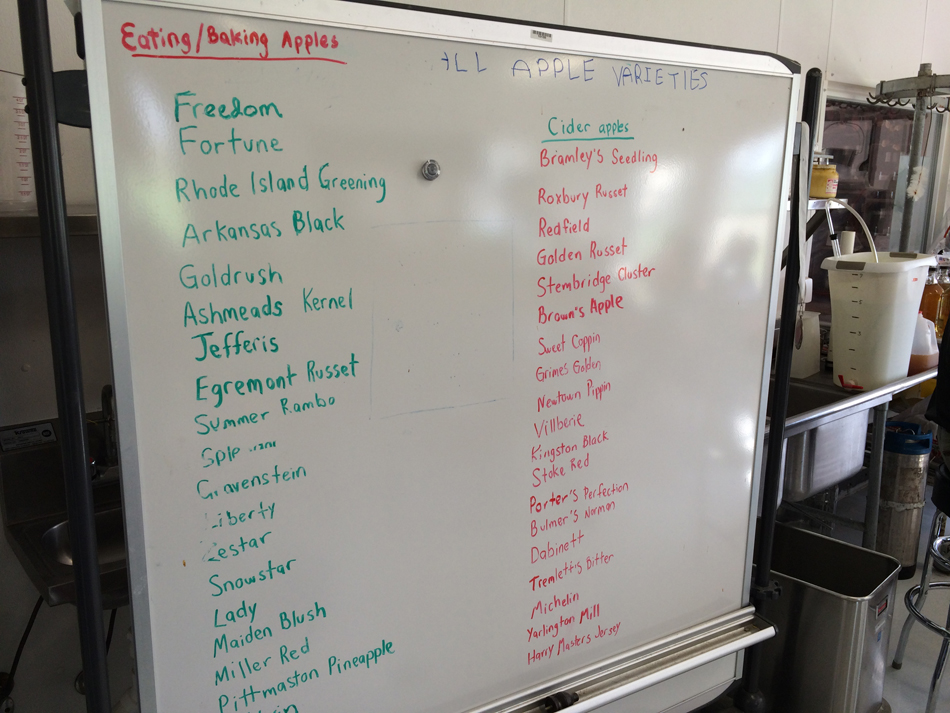
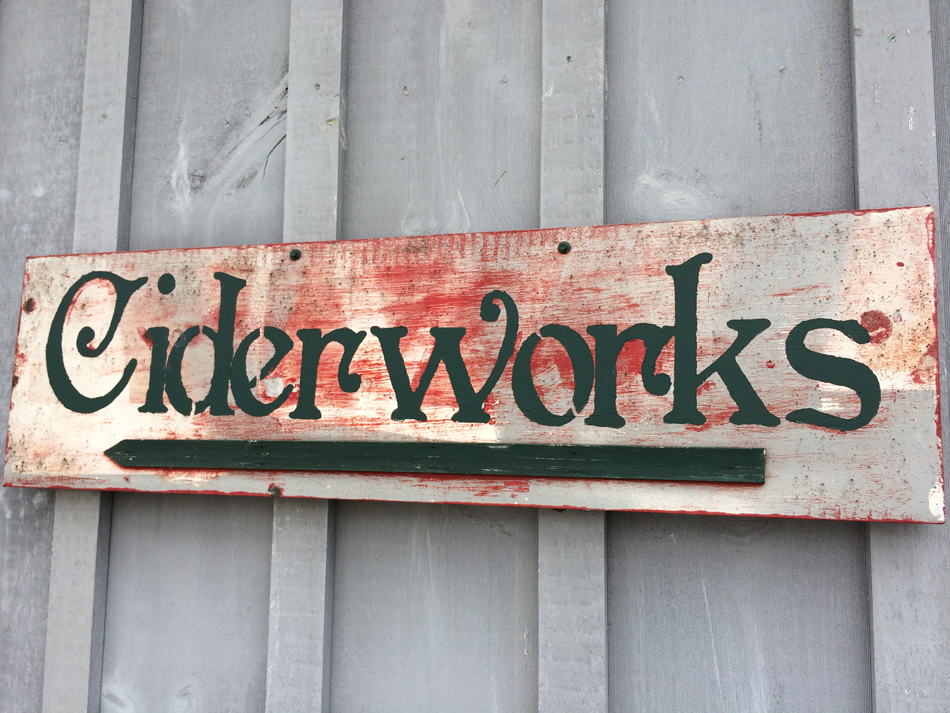
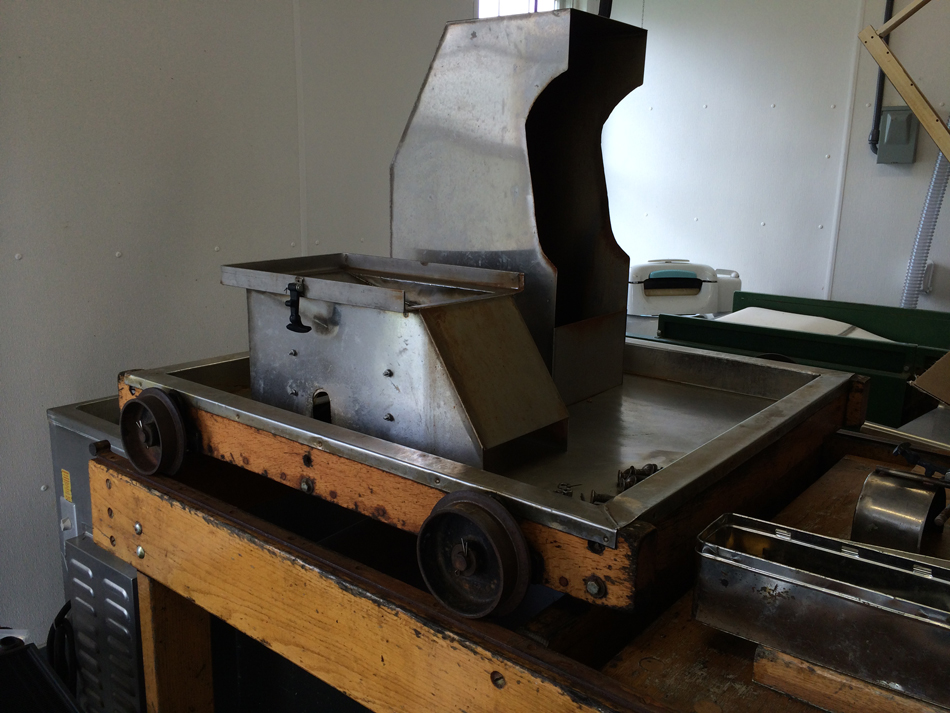
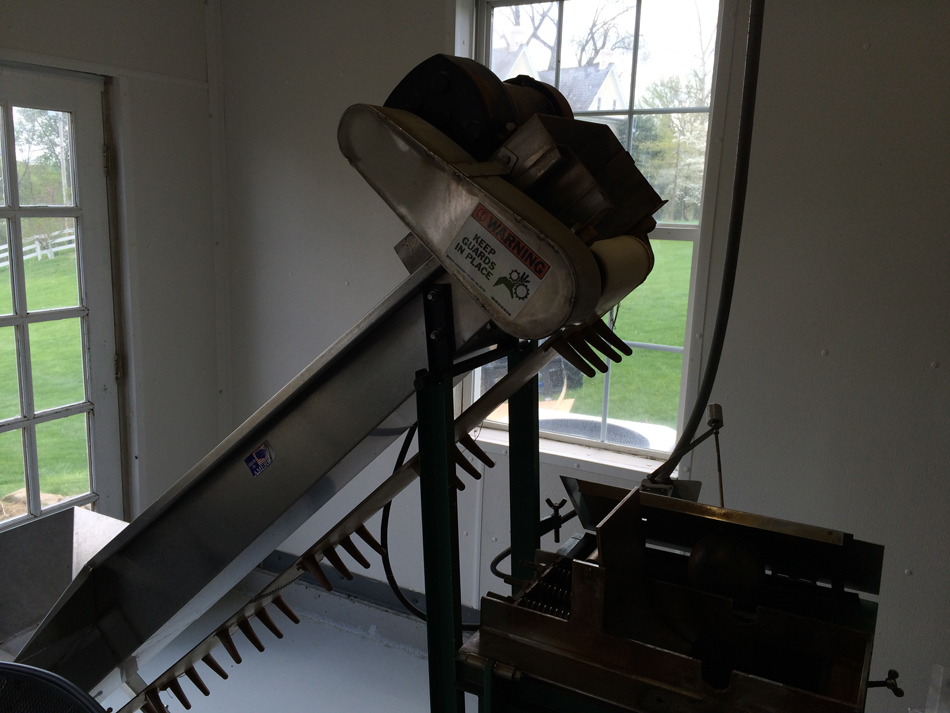
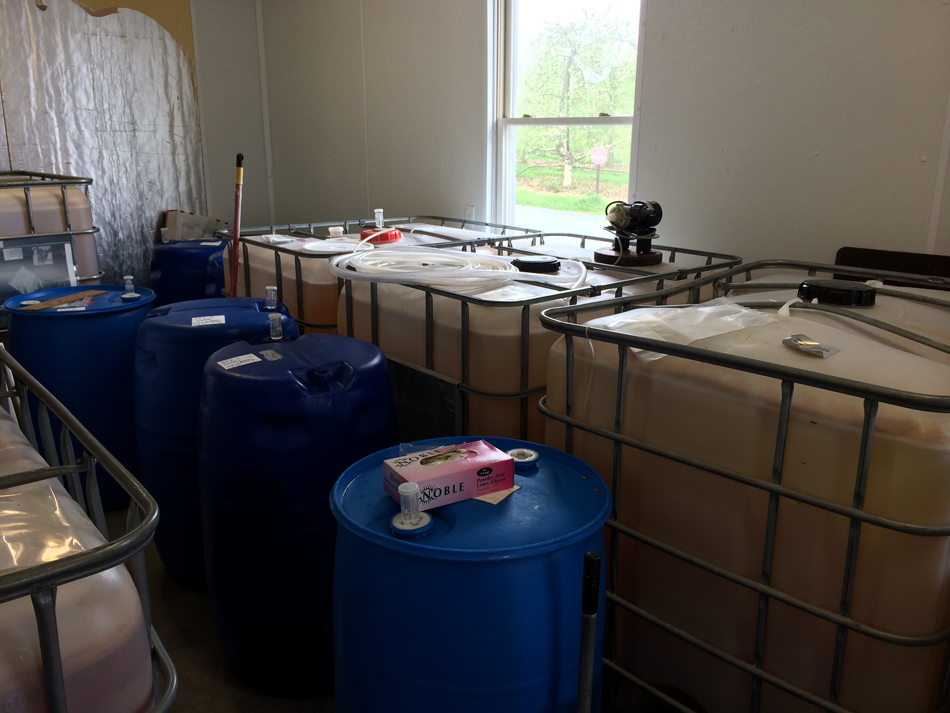
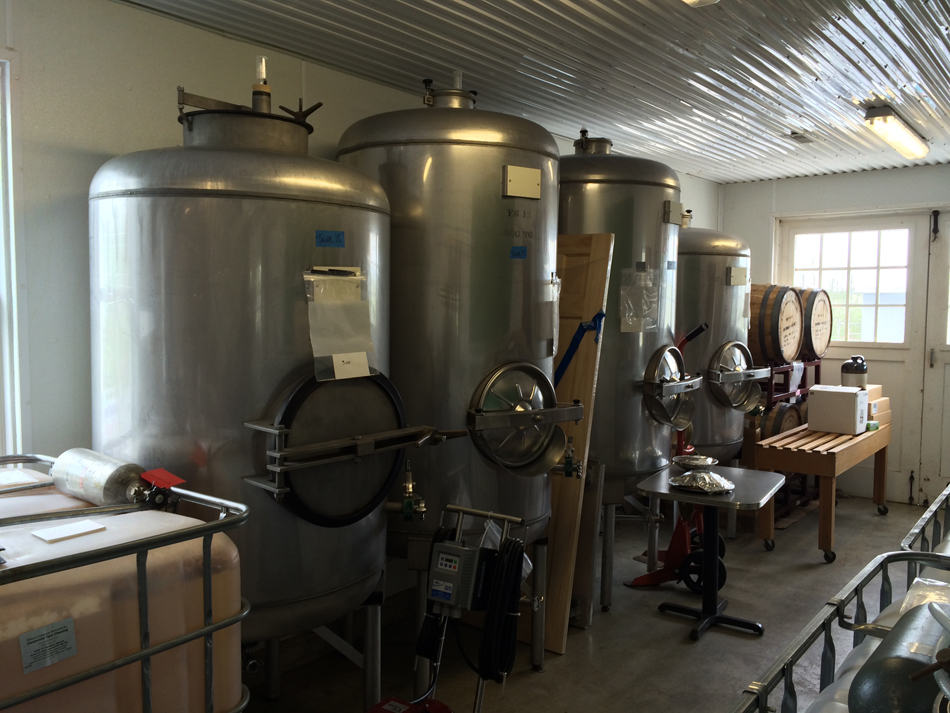
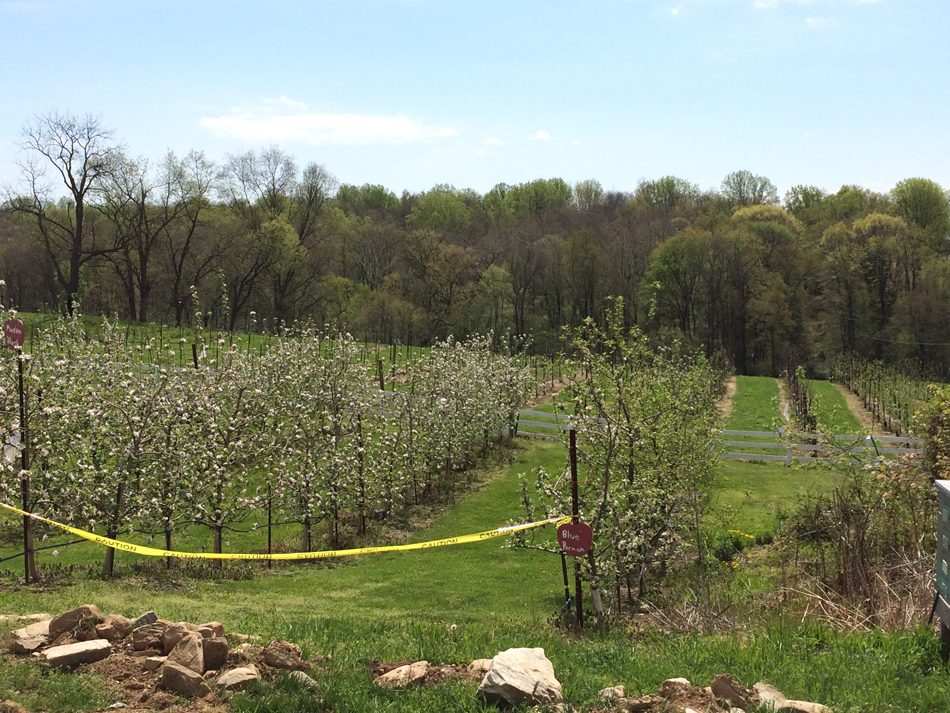
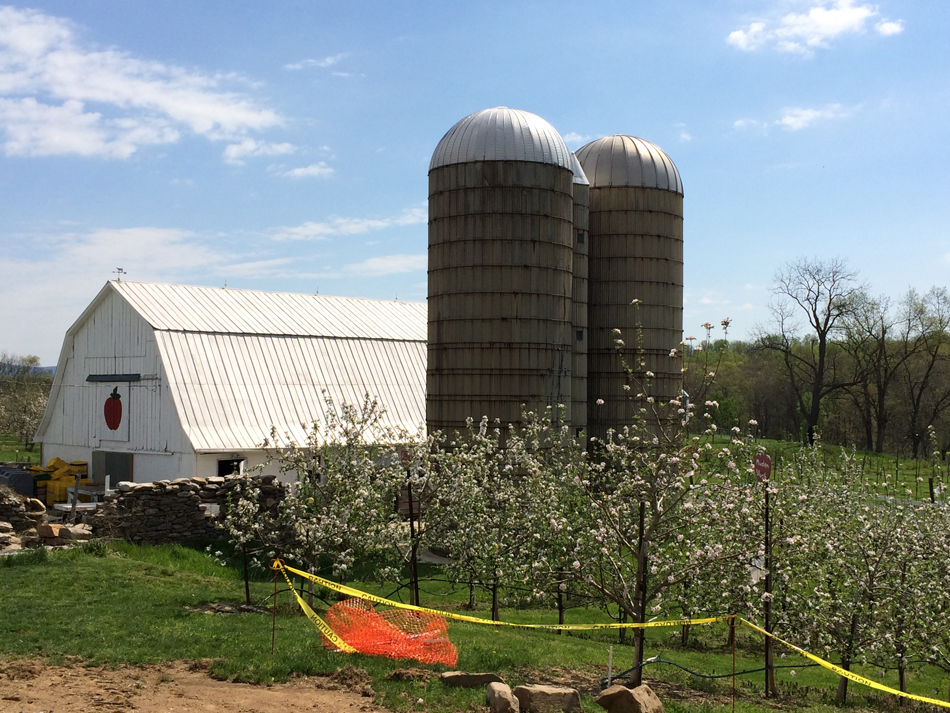
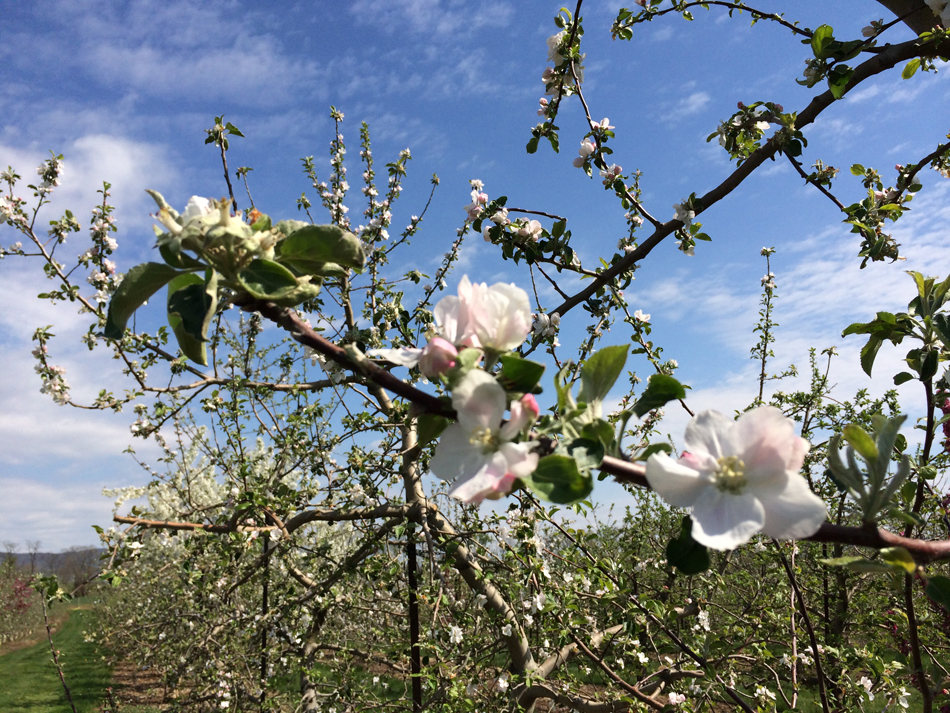
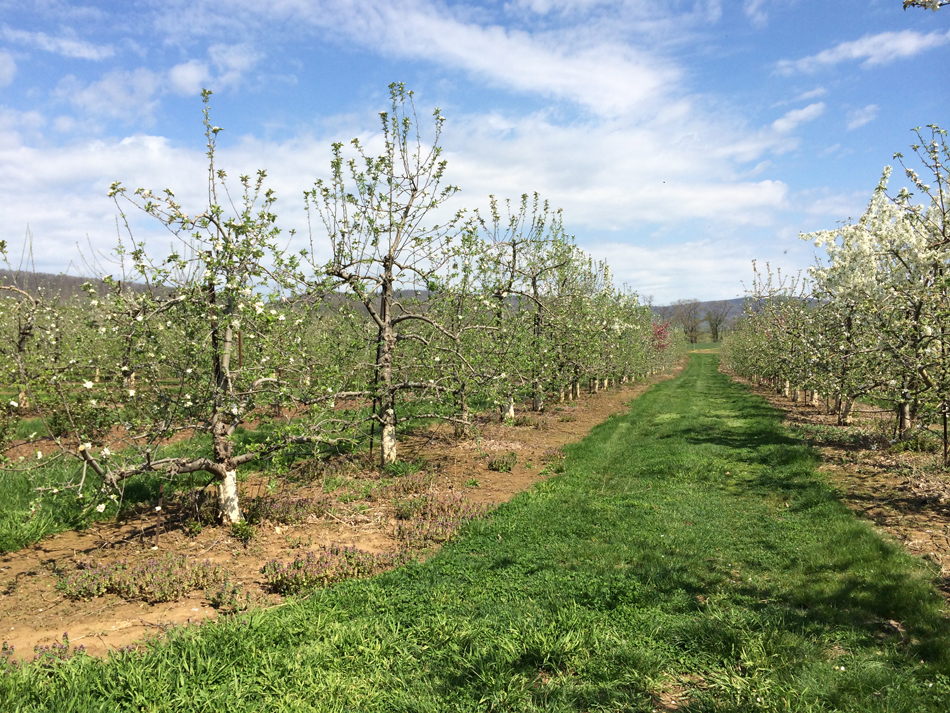
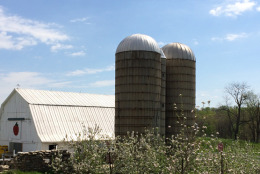
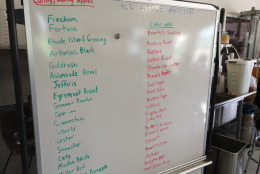
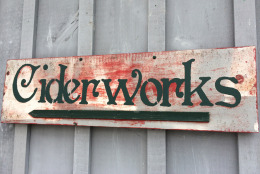
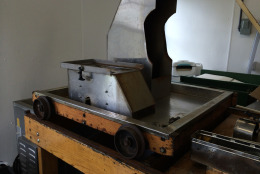
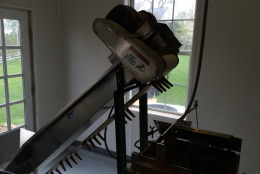
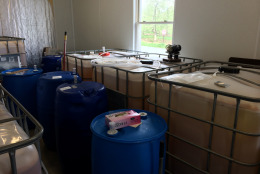
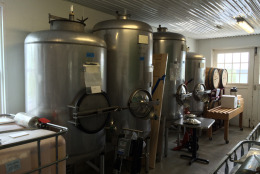
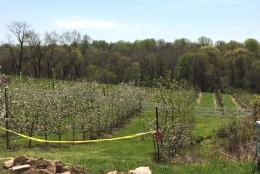
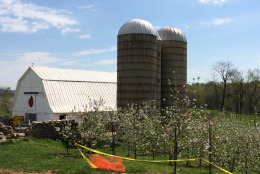
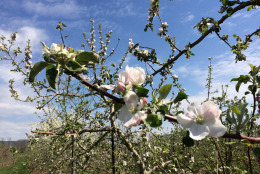
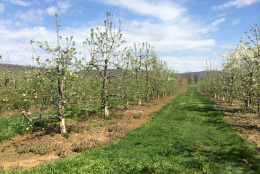
JEFFERSON, Md. — It won’t be long before juicy apples are plucked from the branches in orchards across the area, and that means it’s time to make hard cider!
You can get a book and try the endeavor at home on your own, or you can drive about an hour from the District to Jefferson, Maryland (not far from Frederick), and take a class on how to do it at Distillery Lane Ciderworks.
Rob Miller, who owns the ciderworks with his wife, Patty Power, welcomes students to their 95-acre farm by saying, “We’re basically going to take you through the A’s to Z’s of cider making. Everything from the apples to how to prepare a finished product.”
Miller and Power bought the property from the state of Maryland in an auction back in 1998, after deciding the area would be a good place to raise their three kids (the primary thing they were looking to grow, they explain). After making some renovations to the existing farmhouse, the family moved to the farm in 2001 and eventually decided to plant hundreds of apple trees (the farm now boasts some 3,000).
Once those initial trees started bearing enough fruit, Distillery Lane Ciderworks was born and, eventually, classes on how to make the fermented apple beverage began in the DLC cider house.
“When you leave here today,” Miller tells a room full of students, “you’ll get a bucket full of cider, enough to make a little over a case. And you’ll get all the ingredients. Tim will talk to you about various styles and how to finish it.”
Tim Rose is head cider maker, who, when he’s not crafting hard cider, works as a geologist at the Smithsonian.
“So, this is basically apple juice, with a little bit of sulfite, and yeast,” Rose explains. “And that’s how it comes out, unfiltered, after a few months.”
Rose takes the class through a history of the apple, like which countries produce the most, and the basics of how to take that bucket of cider home and start your own fermentation project. Along with the raw juice, students are given detailed instructions, yeast packets and an airlock (which fits in a hole Miller drills in the top of each bucket to and allows vapor to escape while the fermentation process takes place).
Afterwards, the cider students seemed eager to get started.
“I liked the [class], I liked it a lot,” says Sarah Goulde, who lives in central Virginia and came to the cider-making class after getting a gift certificate for her birthday. “I thought it was great information about the chemistry behind cider-making, and it was interesting to see how it tied back to wine-making because I lived in California for 33 years.”
Also lugging a bucket of cider to his car was Jason McDevitt of Williamsburg, Virginia.
“[The class] was great,” McDevitt says. “It was really, really informative, good to sample all the ciders. I thought it was really good.”
And with all that’s needed to ferment his own batch at home in hand, how does he think it will turn out?
“Probably not nearly as good as theirs,” he says with a laugh. “But hopefully at least drinkable.”
Cider making classes at Distillery Lane Ciderworks are finished for this year, as the Miller family gets ready to harvest their apples. But, you can pre-register now for next year’s classes ($125 per person), which start in January.







